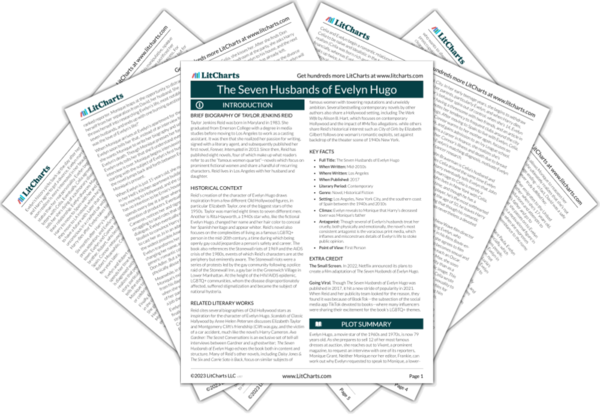When the two films
Evelyn wanted parts in come out, they receive dismal reviews, which Evelyn uses as leverage with
Harry. He and
Ari offer her the option of either playing an Italian heiress or playing Jo in
Little Women. Evelyn chooses Jo: though it’s a white role, which means she’ll have to transform physically, it will put her on a more ambitious career path. Evelyn meets with a stylist who bleaches her
hair and shapes her eyebrows, a nutritionist who prescribes cabbage soup and smoking for weight loss, and an elocutionist who forbids her from speaking Spanish. Evelyn also fills out a questionnaire about her life, but the researcher who reads it tells her she needs to change her answers, especially making sure to paint her
father as a caring, hardworking man.
